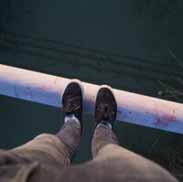Physical Anthropology: Ch.1 – Flashcards
Unlock all answers in this set
Unlock answersquestion
A physical anthropologist would study which of the following? -modern hunter-gatherers in Africa -skeletons from ancient Rome -primate behavior -All of the choices are correct.
answer
all are correct
question
A scientific hypothesis can predict future outcomes. - be refuted by new information. - help to explain observed phenomena. -All of the choices are correct.
answer
All are correct
question
A scientific theory is nothing more than a guess
answer
False- theory is a set of hypotheses that have been rigorously tested and validated- generally accepted explanation of specific phenomena
question
For your physical anthropology research project, you report that you measured the length of 150 gorilla thighbones, and you suggest that the two groups you found represent different sexes. What problem might your professor have with this report? -Your report does not attempt to test a hypothesis. -Your report uses the scientific method. -Your report does not identify past literature on the topic. -Your report uses all four fields of anthropological inquiry.
answer
-Your report does not attempt to test a hypothesis: Using the scientific method, you would first create a hypothesis (e.g., that the length of gorilla thighbones could provide information on the sex of the animal); then test your hypothesis (by measuring the thighbones); and then draw your conclusions (that males have longer thighbones than females do). In this example, your professor might be disappointed that you did not first state your hypothesis.
question
Humankind is still evolving, but recent genetic changes are often less interesting to physical anthropologists than the striking evolutionary changes that differentiated our hominin ancestors from apes. Which of the following is a possible reason for this? -Physical anthropologists do not study modern humans; they study only ancient hominins. -Human evolution occurs only in Africa and thus cannot help us to understand contemporary people. -Our species now completely depends on culture for its survival. -The origin of bipedal walking in our hominin ancestors is more important than variation in genes for disease susceptibility among modern people.
answer
Our species is now completely depends on culture for its survival- less interesting to anthropologists than the physical changes that occured many years ago
question
Modern humans lost the typical primate honing canine used for food processing because of which invention? -agriculture - stone tools -bipedalism - hunting
answer
stone tools
question
New research in Ethiopia in 2001 changed the way we think about human origins by demonstrating that the earliest hominins lived in wetlands. grasslands. woodlands. None of the choices is correct.
answer
woodlands
question
Physical anthropologists can understand human biological variation by looking at changes in genes. health. lifestyle. All of the choices are correct.
answer
all are correct
question
Physical anthropologists study only Africa, where humans evolved.
answer
False
question
Physical anthropology and biological anthropology are equivalent.
answer
True
question
Physical anthropology deals with all aspects of human biology, both past and present.
answer
True
question
Physical anthropology is a(n) ______________ science. interdisciplinary social biological All of the choices are correct
answer
all of these are correct
question
Physical anthropology is the study of human __________ and human biocultural _________.
answer
evolution; variation
question
The environment does not affect humans' biological makeup.
answer
False
question
The four branches of anthropology are
answer
cultural, physical, linguistic, and archeology
question
The study of culture in the past based on material remains is part of which branch of anthropology?
answer
archeology
question
Which of the following is NOT a uniquely human activity? gossiping with friends making a bookshelf growing corn climbing a tree
answer
climbing a tree
question
Which of the following outlines the steps of the scientific method in their proper order? -Identify a problem; state a hypothesis; collect data; test the hypothesis. -State a hypothesis; test the hypothesis; collect data; identify a problem. -Identify a problem; collect data; state a hypothesis; test the hypothesis. -Collect data; state a hypothesis; test the hypothesis; identify a problem.
answer
Identify a problem, state a hypothesis, collect data, test the hypothesis
question
Which of the following would a physical anthropologist NOT study to learn more about humans? pottery and stone tools bones and teeth disease and nutrition genes and reproduction
answer
pottery and stone tools
question
Anthropology
answer
the study of humankind, viewed from the perspectives of all people and times
question
cultural anthropology
answer
the study of modern human societies through the analysis of the origins, evolution, and variation of culture
question
archeology
answer
the study of historic of pre-historic human populations through the analysis of material remains
question
linguistic anthropology
answer
study of construction, use, and form of language in human populations
question
physical anthropology
answer
the original term for biological anthropology
question
biological anthropology
answer
study of evolution, variation, and adaption of humans and their past and present relatives
question
sociolingustics
answer
science of investigating languages social contexts
question
genome
answer
complete set of genetic information
question
Primates special triats
answer
large brains, forward-facing eyes, fingernails, reduced snouts
question
Six big events of human evolution
answer
bipedalism, nonhoning chewing, dependance on material culture, speech, hunting, and domestication of plants and animals
question
empirical
answer
verified through observation and experiment
question
scientific law
answer
a statement of fact describing natural phemonmena



